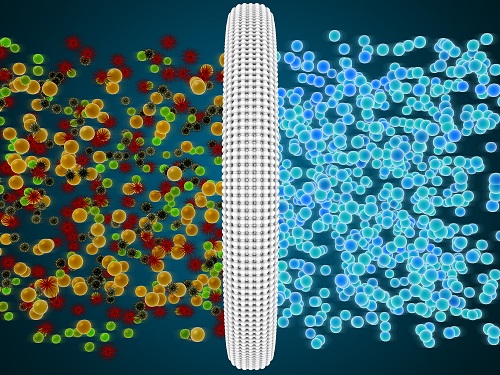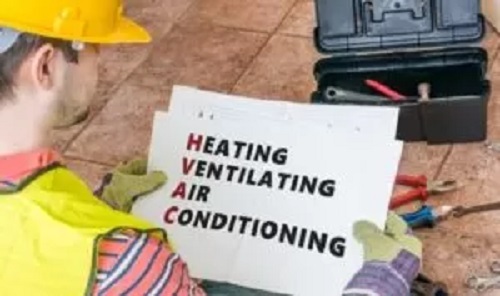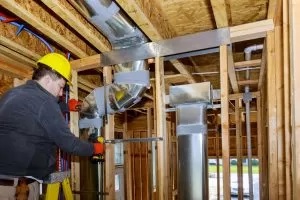
An HVAC system, which stands for Heating, Ventilation, and Air Conditioning, is a vital component of residential, commercial, and industrial buildings. It is responsible for providing thermal comfort, ensuring proper air quality, and maintaining suitable humidity levels. An HVAC system consists of three main parts: the heating system, the ventilation system, and the air conditioning system. Let’s explore each of these components in detail.
The heating system is an integral part of an HVAC system, especially in colder climates or during the winter season. Its primary function is to provide warmth and maintain a comfortable indoor temperature. There are various types of heating systems used in HVAC, including furnaces, boilers, heat pumps, and electric heaters. Furnaces are commonly used and operate by burning fuel, such as natural gas, oil, or propane, to generate heat.
Boilers, on the other hand, use water or steam to distribute heat throughout a building. Heat pumps are versatile systems that can both heat and cool a space by extracting heat from the air or ground. Electric heaters use electric resistance to generate heat. The heating system works in coordination with thermostats, which regulate temperature settings and provide control over the heating process.
The ventilation system is responsible for maintaining fresh and clean air indoors by removing stale air, pollutants, odors, and excess moisture. It also ensures the proper exchange of indoor and outdoor air to maintain air quality. The ventilation system consists of various components, including air ducts, fans, and vents. Air ducts distribute the conditioned air throughout the building, while fans help circulate the air. Vents, located in different areas of the building, allow the entry and exit of air.
In addition to mechanical ventilation systems, natural ventilation can also be utilized, which relies on the use of windows, doors, and vents to facilitate the movement of air. Proper ventilation is crucial for preventing the buildup of harmful substances, controlling humidity levels, and promoting a healthy indoor environment.
The air conditioning system, commonly referred to as AC, is responsible for cooling and dehumidifying the air. It is particularly important during hot summers or in regions with high temperatures. The AC system operates by extracting heat from indoor air and transferring it outside, thereby lowering the temperature.
The main components of an air conditioning system are the compressor, condenser, evaporator, and refrigerant. The compressor pressurizes and circulates the refrigerant, which absorbs heat from indoor air. The refrigerant then travels to the condenser, where it releases the heat to the outside environment.
Finally, the cooled refrigerant returns to the evaporator, where it absorbs heat from the indoor air, thus cooling it. The air conditioning system can be centralized, with a central unit cooling the entire building, or it can be decentralized, with individual units cooling specific areas or rooms.
In addition to these three main parts, an HVAC system may also include auxiliary components such as filters, humidifiers, and thermostats. Filters help clean the air by trapping dust, pollen, and other particles, ensuring better air quality. Humidifiers are used to increase humidity levels in dry environments, while dehumidifiers reduce humidity in areas with excess moisture. Thermostats, as mentioned earlier, play a critical role in controlling temperature settings and regulating the operation of the HVAC system.
In conclusion, an HVAC system consists of three essential parts: heating, ventilation, and air conditioning. These components work together to provide thermal comfort, maintain proper air quality, and regulate humidity levels in buildings. Understanding the functions and interactions of these three parts is crucial for designing, operating, and maintaining an effective HVAC system that contributes to a healthy and comfortable indoor environment.
Call Florence HVAC Experts for routine maintenance on your HVAC system to keep it running like new!
Like our Facebook page for more great info about HVAC services.
Florence HVAC Experts
Florence, SC 29501
843-636-3260
http://florencehvacexperts.com/



 Tips for Replacing Ductwork
Tips for Replacing Ductwork